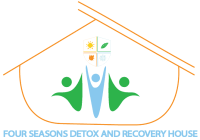When someone struggles with addiction, it doesn’t just affect their physical health—it impacts every aspect of their life. Traditional treatment methods often focus primarily on detoxing the body and managing withdrawal symptoms, but this approach can fall short of addressing the deeper emotional, psychological, and social factors that contribute to addiction. This is where whole-person treatment comes in, revolutionizing the approach to addiction recovery by treating individuals holistically rather than merely symptomatically.
What is Whole-Person Treatment?
Whole-person treatment, sometimes referred to as holistic care, involves a comprehensive approach that considers an individual’s physical, emotional, psychological, spiritual, and social needs. Instead of solely treating the addiction itself, this method addresses the interconnectedness of all aspects of a person’s life. By doing so, it fosters a sustainable, meaningful recovery that lasts far beyond initial sobriety.
According to the Substance Abuse and Mental Health Services Administration (SAMHSA), integrated treatment models that address both mental health and substance use disorders simultaneously result in better recovery outcomes. In fact, nearly 8 million American adults suffer from co-occurring mental health and substance use disorders, making a comprehensive treatment model crucial for effective recovery. Whole-person treatment embodies this integrated approach.
What Does Whole-Person Treatment Consist Of?
So what exactly does whole-person treatment include? While the concept sounds big—and it is—it’s made up of specific, intentional practices that target every part of someone’s wellbeing. At its core, whole-person care is about meeting people where they are and giving them the tools to heal on every level. Here’s a look at the key components:
- Physical Recovery: This typically begins with medically supervised detox to manage withdrawal safely. From there, patients benefit from nutrition counseling and physical wellness plans (like movement therapy or fitness classes) to help restore the body and rebuild strength.
- Mental Health Support: Therapy is foundational. This can include individual counseling, group therapy, and evidence-based methods like cognitive-behavioral therapy (CBT). For many, trauma-informed care plays a critical role in addressing past experiences that may fuel substance use.
- Emotional Wellbeing: Holistic approaches like mindfulness, meditation, and stress management techniques create space for patients to explore and regulate their emotions in healthy ways.
- Spiritual Healing: This doesn’t necessarily mean religion—it means tapping into a sense of purpose, hope, or connection. Patients might engage in spiritual counseling, 12-step programs like AA, or non-12-step options like SMART Recovery, depending on their preferences.
- Social and Life Skills Reintegration: Addiction often isolates people. Whole-person care includes rebuilding those social bridges through family therapy, support groups, and community-building activities. Life skills coaching and job readiness programs help people step back into the world with confidence.
Each of these elements works together like pieces of a puzzle, ensuring people not only recover—but thrive. When someone has been in active addiction for a while, relationships get strained or even broken. That’s why family therapy and social reintegration support are essential parts of recovery. And for people trying to get back into the workforce, job readiness training or life skills development can make a world of difference. It’s not just about staying sober—it’s about building a life that makes sobriety worth it.
The Benefits of Whole-Person Treatment
Let’s be real, recovery isn’t just about not using drugs or alcohol. It’s about creating a life where you don’t need to escape. And that’s where this approach shines.
According to the National Institute on Drug Abuse, treatment programs that consider all aspects of a person’s life—medical, psychological, social, vocational, and legal—are more effective than those that only treat the addiction itself. When people feel supported in all areas, they’re more likely to stay in treatment longer and less likely to relapse.
There’s also something powerful about feeling seen. Whole-person care makes room for that. Instead of reducing someone to a diagnosis or a behavior, it treats them as a full human being with a past, present, and future. That shift in mindset can completely change how someone engages with recovery.
Real-World Results That Matter
Research backs it up: integrated, holistic treatment leads to improved long-term outcomes. A SAMHSA review of integrated care found that programs that address physical and mental health together significantly reduce substance use and improve overall well being.
Patients in these programs are also more likely to report higher satisfaction, more personal empowerment, and better quality of life. And when people have the tools and support to navigate life’s challenges, they’re better equipped to stay sober and thrive.
FAQs About Whole-Person Treatment
What makes whole-person treatment different from traditional treatment?
Whole-person treatment differs by treating addiction holistically—addressing physical, emotional, psychological, spiritual, and social needs simultaneously. Traditional treatments typically focus on detox and physical recovery without fully addressing mental and emotional health.
Can whole-person treatment help with co-occurring disorders?
Yes, whole-person treatment is particularly effective in addressing co-occurring disorders, such as depression or anxiety, alongside addiction. Integrated care is personalized to tackle both mental health and addiction simultaneously, significantly improving recovery outcomes.
Is whole-person treatment suitable for everyone?
While beneficial for most, whole-person treatment is especially effective for those who have experienced relapse after traditional methods or individuals facing complex emotional or mental health challenges.
How long does whole-person treatment typically last?
Treatment duration varies based on individual needs and progress, typically ranging from 30 to 90 days or longer, ensuring each aspect of recovery is thoroughly addressed.
Does insurance cover whole-person treatment?
Many insurance plans cover holistic treatments, particularly those medically necessary. It’s essential to verify specifics with your provider to understand your coverage fully.
Take the First Step Toward Whole-Person Healing
At Four Seasons Detox, we recognize addiction is more than just substance dependence—it’s a complex issue requiring personalized, compassionate care. Our facility specializes in whole-person treatment, ensuring each aspect of your recovery journey is supported and nurtured. We provide holistic care tailored specifically to your needs.
We are a leading addiction treatment center committed to providing compassionate, individualized care focusing on the whole person. Our dedicated team of professionals offers comprehensive programs designed to support you at every stage of recovery.
For help with your addiction and to learn more about our whole-person treatment options, contact us today.



